Bicentennial of Methodist mission – a time for connection and reflection
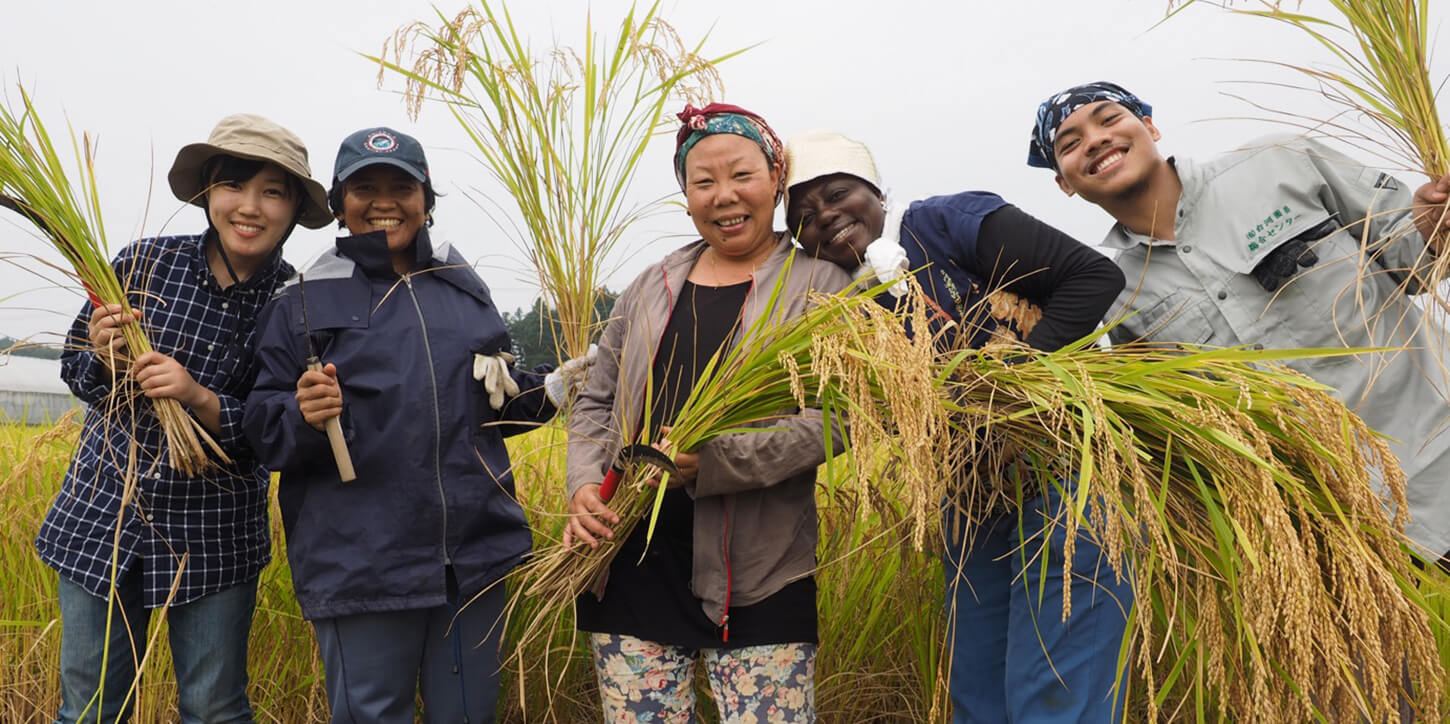
By Christie R. House
April 12, 2019 | Atlanta, Ga.
“Global Ministries exhibits courage in bringing us together to pause and reflect on mission history. We revisit the past, and we can see the shortfalls, but we also see how God is at work.”
-The Rev. Patience Kisakye, pastor from Uganda, now serving the Upper New York Annual Conference
It was clear from the first moments of the Bicentennial Conference in Atlanta that this event would bear little resemblance to the church’s centenary celebrations of 1919. “Answering the Call: Hearing God’s Voice in Methodist Mission Past, Present and Future,” the theme of the bicentennial celebration, encouraged participants to listen to present voices, reflect on 200 years of mission practice and discern God’s guidance in reshaping mission ministry for its third century of service. The centenary, by contrast, described as Methodism’s “World’s Fair,” spanned three weeks and drew more than a million visitors, celebrating the great progress and scope of American Methodist mission.
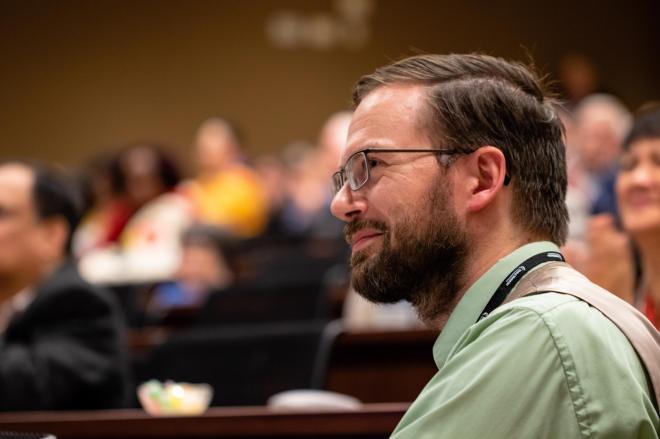
PHOTO: JENNIFER SILVER
Dr. David Scott, Global Ministries’ director of Mission Theology, who envisioned and coordinated much of the conference, said his hope for this conference was that participants would find ways to connect with one another and connect their work in God’s mission.
Answering the Call, sponsored jointly by Global Ministries and Candler School of Theology, opened by acknowledging the displacement of the Muscogee/Creek people from the North Georgia region by 19th-century relocation policies of the United States. Led by the Rev. Glen Chebon Kernell Jr., executive director of the Native American Comprehensive Plan, Discipleship Ministries, this short ceremony set the tone for the thoughtful reflection and conversations that followed.
Among the event’s 250 participants were United Methodists from 16 countries and representatives from at least 21 other Methodist-related communions. Participants, who represented 35 countries in all, included deans and professors, current missionaries, students, mission volunteers, staff from general agencies, bishops, laity and clergy. The bicentennial embodied the heart of the Methodist mission movement, evident in Wesley’s concern for social and personal holiness and a deeply rooted desire that everyone have an opportunity to experience the healing love of Christ.
Hearing God’s voice
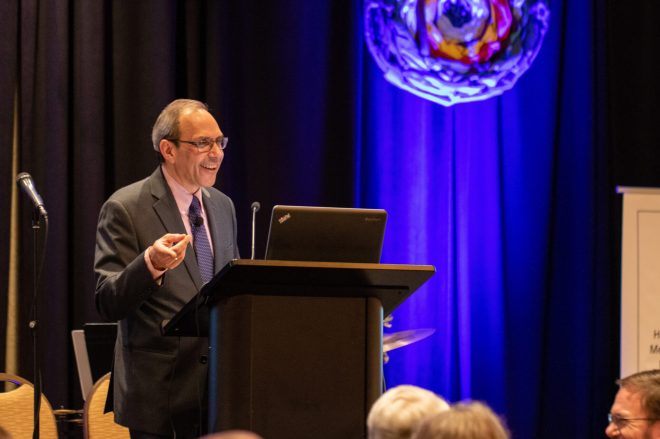
Bishop Hee Soo Jung of the Wisconsin Conference, who serves as president of Global Ministries’ board of directors, welcomed visitors and acknowledged the intrinsic differences of this post-colonial gathering to the mindsets and perspectives of the missionaries it celebrated, sent out in the early years of Methodist mission societies. “We now see a paradigm shift to transformative partnerships, empowering and life-giving connections,” Jung said.
Dr. Arun Jones, the Dan and Lillian Hankey Associate Professor of World Evangelism at Candler School of Theology, spoke about mission history. He shared failures and successes, transgressions and graces. He fleshed out the story of John Stewart, a missionary of African descent serving among the Wyandotte people, who inspired the creation of the 1819 Missionary Society.
Today, global partners guide Western Christians in discerning when and where the church is falling short of its mission – in the past, in the present and into the future. At times deeply flawed, claiming to work in Christ’s name, Methodists were part of a missionary enterprise that harmed the cultures and lives of the very people they sought to reach. Jones encouraged the assembly to listen for the voice of God speaking through Methodist mission of the past to discern what was, and is, truly of God to celebrate and take into the future.
Mission past and present
“Are you ready to be missioned by people from the margins?”
– Bishop Mande Muyombo, from North Katanga, Democratic Republic of the Congo
Throughout the conference, Christian leaders of the Eastern and Southern hemispheres provided witness to the effects of colonialism and racism in their local contexts. Bishop Mande Muyombo, North Katanga Episcopal Area, spoke about mission and peacemaking. North Katanga is the largest episcopal area in The United Methodist Church, encompassing three conferences and more than a million members.
While Mande acknowledged that mission was used as an abusive tool for colonization, he did not equate the work of Methodist missionaries with that of Belgian colonizers. “King Leopold, with the complicity of religion, kept Congo as his private property,” the bishop noted. “He became so rich; he could not hold Congo as his personal property but transferred it to Belgium. Religion told our parents it was best for them to stay quiet, be poor and worry about God’s kingdom – spend time in church praying. Colonizers disposed of our cultural heritage in the name of religion.”
Conflicts among ethnic groups before and after independence were generally over satisfying basic human needs. Methodist mission brought alternatives to combat poverty and malnutrition, such as small-scale farming and investment in health ministries in the DRC. Mande did not consider this kind of work separate from evangelism.
“For North Katanga, God’s mission emerged as a tool for peacemaking. Conflict is transformed to an open dialogue, making space for negotiations. Through mission, we established criteria for the community to learn how to share the water and make sure the most marginalized children access the water first,” he said. “If we were to remove the UMC from North Katanga, there would be no life. There would be no education, no food security. The church, through its mission, has become the center of hope, development and national peacebuilding.”
During the day, conference participants referenced the bishop’s address, connecting their experience with what they were hearing. Mikio Miyagi, a visiting lecturer with Boston University from Japan, expressed the need for formal apologies from aggressor countries. While he also delineated the actions of the Japanese government from the actions of Christians in Japan, he said Japan has made, and continues to make, formal apologies and acknowledgement of the wrongs it perpetrated on neighboring Asian countries in the 20th century.
Later, during a discussion group, Wen Ge, the associate general secretary of the China Christian Council in Nanjing, China, expressed solidarity with the Congolese situation, despite living in an entirely different political context. He talked about the ongoing development of a Christian Chinese theology and a church that seeks to work with all Chinese on the reconstruction of civil society. Christianity in China could not grow as a Western-planted and controlled entity. Today, its mission, support and administration in a post-denominational era are entirely Chinese, a church of 38 million members. Some missionaries, he said, understood the Chinese context and transferred institutions well before political events mandated that course of action.
Future landscape of the church
“What will happen when we give up on thinking of the church as a business that needs more clients?”
-Dr. Elaine Heath, Abbess, the Community at Spring Forest, from the U.S.
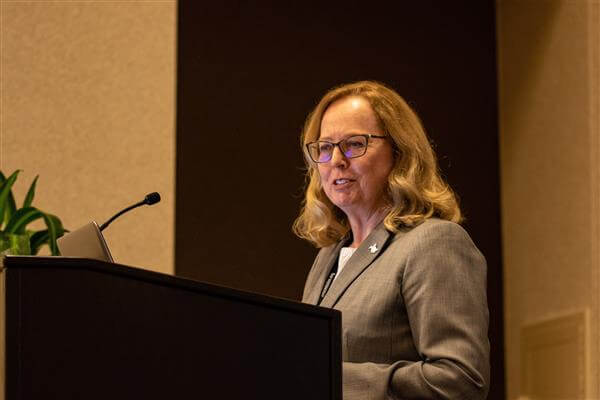
Workshop sessions throughout the conference focused on mission topics in smaller group settings. Several sessions considered migration in relationship to mission and the roles of migrants both as mission receivers and church planters. Sessions were offered on violence and peace; race, class and culture; women in mission; and current missionary thought. A few sessions highlighted history and famous missionary personalities.
Several keynote speakers affirmed the ways North American Methodists mirror their global siblings in the quest for defining relevant, vital theology. Dr. Elaine Heath, Abbess of the Community at Spring Forest, an intentional Christian community, spoke about “Trauma-Informed Evangelism.” She compared the best possible model for church planting to permaculture farming.
“Self-sustaining church planting,” Heath said, “is like a rural garden. We can learn from permaculture and imitate the biodiversity of nature. Everything in the ecosystem plays a final role. Good evangelism is all about the neighborhood. It is never about the church and pews. It’s about health, healing and the salvation of the whole neighborhood through medical, family and social systems. Evangelism becomes flesh and blood and moves into the neighborhood.”
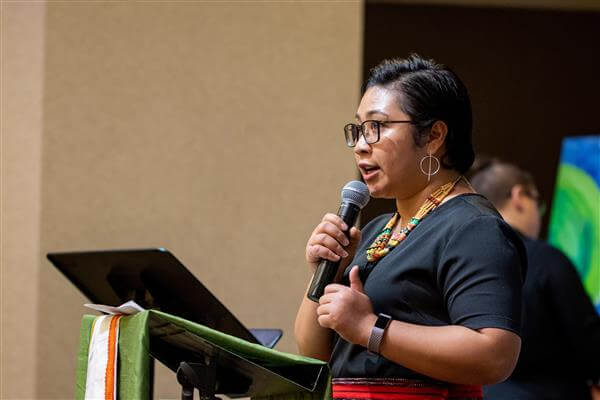
Less comfortable, more prophetic
“We ask you to allow us to be young. We invite you to be young – open to renewal and transformation and willing to turn aspects of the way we do mission upside down.”
– Joy Eva Bohol, missionary, program executive for Youth Engagement, World Council of Churches, Switzerland, from the Philippines
The conference concluded with a presentation from Joy Eva Bohol, a missionary serving with the World Council of Churches in Geneva. She described some of the challenges faced by young adults she’s encountered: unemployment, migration, refugee life, climate change, access to basic human needs, opportunity, gender violence and access to decision-making bodies. She pointed to an increasingly difficult climate for young adults, who are often denied entry into other countries; she had to cancel a youth event because three out of four youth and young adults invited could not obtain visas to enter Switzerland.
The church needs to find creative ways to encounter people, particularly young people, where they are and where they gather. Church is getting too comfortable, she noted. “To witness, to be uncomfortable, to be prophetic, to speak truth to power, to be inclusive, to stand with the oppressed and those in the margins – by this we transmit the gospel and see the order of things turned upside down,” said Bohol.
Throughout the various plenaries, panel discussions and one-on-one conversations in the hallways, participants discovered how the foundations of mission ministry have been turned upside down many times in 200 years of practice. The living, breathing church moving across the landscape in the backpacks of migrants and the suitcases of missionaries will journey wherever God leads it. “When we put a block in God’s way, commented Heath, “God becomes like water and flows around it.”
Christie R. House is the senior editor/writer for Global Ministries.

